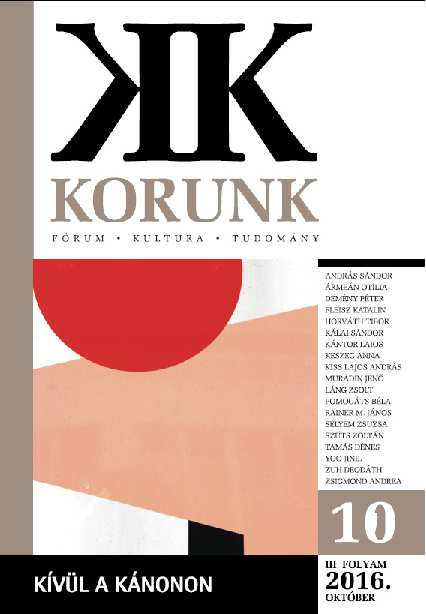
We kindly inform you that, as long as the subject affiliation of our 300.000+ articles is in progress, you might get unsufficient or no results on your third level or second level search. In this case, please broaden your search criteria.

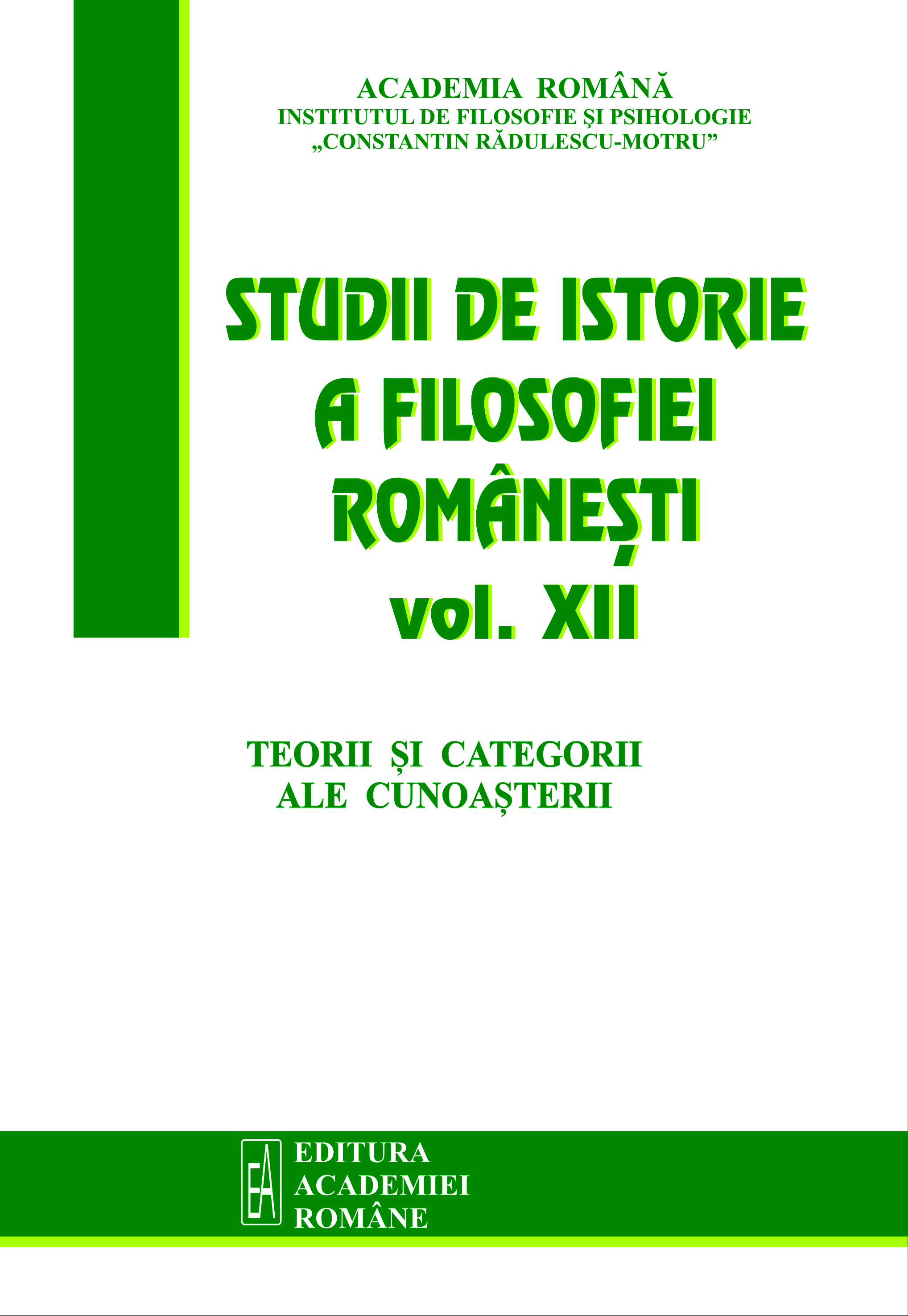
In Mircea Florian’s philosophy, the object of traditional metaphysics is critically disqualified in order to establish the given in general as a new beginning for philosophical thinking. In spite of this explicit departure, Florian’s philosophy of given is still being interpreted as a metaphysical thinking. This paper analyzes Florian’s concept of given and establishes several distinct figures of this concept. It compares them with the ontological and theological objects of traditional metaphysics. It shows that the figures of given work with an ontological postulate while removing an ontological project. On this basis, the author argues that the philosophy of given is both dependent and different from traditional metaphysics. Moreover, the author confirms his thesis with regard to the ontological conception of knowledge, one of Florian’s main theme of interest.
More...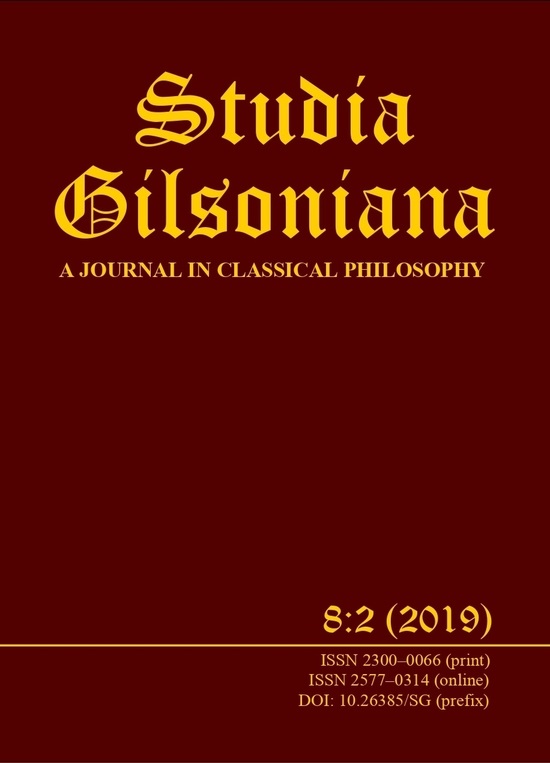
Considered one of the leading proponents of natural theology in the 20th century, E. L. Mascall (1905–1993) taught philosophy and theology at King’s College London for most of his career. Unlike many of his contemporaries, he insisted that classical theism, embodied in the writings of Augustine and Thomas Aquinas, could be successfully revived for a modern audience. Known for his vigorous defense of neo-Thomism, Mascall offered an unusual interpretation of The Five Ways. While modern scholastics typically read the proofs as syllogistic exercises, Mascall maintained that God’s existence could not be deduced from premises, but must be grasped by means of a unique type of “metaphysical intuition” which he called “contuition.” In my paper, I will re-examine his position, explore his reasons for adopting it, and finally raise several questions concerning its significance for the history of neo-Thomism.
More...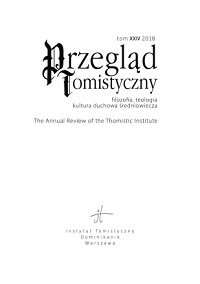
Within the work of Wyclif, two concepts occupy an important place, namely those of use and domination. This paper traces the origin of these two concepts in scholasticism. For this purpose, I first examine the second argument of poverty, formally determined by the Council of Constance, in the 15th century; then the theory of dominium in Spanish scholasticism of the 16th century, with the problem of the rights of Indians; then I show its enduring posterity, surviving even in Locke’s work. Finally, I reflect on the conditions of the use of the world.
More...
After a brief summary of the literature on the topic of universals in Hus’s writings, the present study continues with a summation of our knowledge of Hus’s commentaries on Aristotle, and a presentation of those of Hus’s other treatises which are the most relevant to the topic of universals. Although the topic of universals is fundamentally philosophical, a significant source for our understanding of Hus’s position is his theological works, particularly his Sentences commentary. Based on an analysis of Hus’s Super IV Sententiarum I, distinctions 19 and 33, the study shows (in the theological contexts of the divine properties and a comparison between God and a universal) that Hus was persuaded about the reality of universals understood as formal components of the essence of individual substances, which are different from these substances by means of a formal distinction. Besides providing further details on Hus’s philosophical realism, the study demonstrates that similarly to his position concerning the divine properties, which is based on Thomas Aquinas, Hus understood his realist position as the opinio media. Hus also agreed that there are many similarities between God and a universal, although, as Hus puts it, it would be devious and false if someone would want to see this likeness in all the aspects..
More...
Heymeric de Campo († 1460), whose Tractatus de naturali veritatis catholice circa principia philosophie christiane universalia analesy was critically edited by Zenon Kaluza, is characterized by a singular style, recognizable by its endless sentences often occupying one to several pages. In this contribution I wish to study this particularity from three points of view: 1) What syntactic and rhetorical processes does the author use to compose such long and complex sentences? 2) How should we edit and punctuate these texts without cutting them incorrectly while providing the reader with the necessary hierarchical clues that allow him to construct them without too much effort on his part? 3) What does Heymeric’s preference for endless sentences mean? I would like to show that Heymeric strives to synthesize all the previous traditions, without losing any of their own differences, but without abdicating the ambition to reunify them. His complex sentence, on the verge of explosion, is like the symbol of this recapitulative effort, which reached its final limits before the end of a certain scholastic age.
More...
It has been established through studies on the Cracovian commentaries on the ars vetus dating from the first half of the 15th century that Hesse’s commentaries are extant in three copies i.e.: BJ 2037, BJ 2043, BJ 2455, held to date as texts of an unidentified student of Hesse. An analysis of all extant copies of the Quaestiones super artem veterem permits one to believe that Hesse edited two versions of commentaries on the logica vetus. The first, issuing from a written tradition, is preserved in full in codices BJ 2037, BJ 2043 and fragmentarily in BJ 2455. The second, probably a later one, in relation to a longer edition and probably issuing from oral tradition, is a shorter version, preserved only fragmentarily in codex BJ 2455. In this shorter version, the following texts are preserved: the complete commentary on the Isagoge, the first three questions of the commentary on the Categories together with the beginning of the fourth question and three last questions of the commentary on the second book of Hermeneutics. Both fragmentarily preserved versions of the longer and shorter commentaries in BJ 2455, are joined in such a way that they give the impression of being a homogeneous commentary. Moreover, it has been established that the commentaries on the Isagoge and Categories, hitherto ascribed to Benedict Hesse and preserved in codex BJ 1900, are, in fact, Paul of Pyskowice’s works, written by his own hand.A detailed elaboration of the results of these studies, which justified the revision of the hitherto held viewpoint regarding Benedict Hesse’s logical works, is presented in the paper.
More...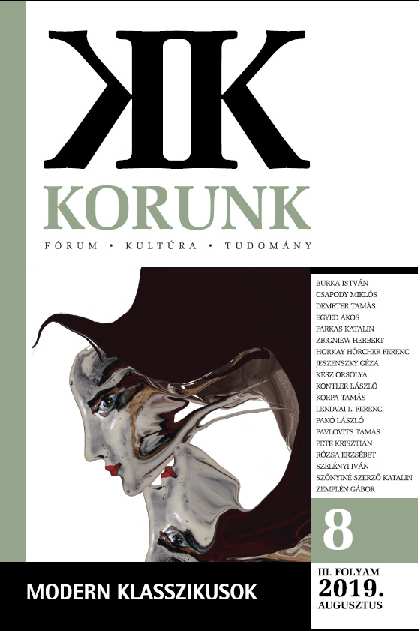

David Hume is a towering figure of the Scottish Enlightenment, of the history of philosophy in general, and his contributions are significant in the history of the human sciences too. Here I focus specifically on the significance of his philosophy for the history of science. If looked at from this angle, Hume’s contributions can be summarized in at least two possible ways: they can be read as contributions to the early history of modern human sciences from cognitive psychology to sociology, and as contributions to the metaphysical and epistemological discourse on then-contemporary knowledge-making practices. Here I propose to read his opus magnum, A Treatise of Human Nature (1739/1740) primarily in the first context (along with his Four Dissertations), and the neat philosophical expositions of An Enquiry Concerning Human Understanding (1748) primarily in the second. An Enquiry Concerning the Principles of Morals (1751) adopts a third perspective of natural history and offers a moral phenomenology that is distinct from both.
More...
In the article the author tries to prove that we might learn a little from Sienkiewicz about how to communicate the truth using Aesopian speech to elude the latest group of censors and perhaps for a while even elude the grasp of the latest tyrant. I wonder, further, whether we may learn not only how the Christians were persecuted under Nero, and how the Polish people were martyred under the Kulturkampf, but also how all who are martyred can unite their own sufferings with those of Christ crucified, and how, trusting in Him, we may share in his heavenly beatitude.
More...
I wish to propose here some remarks on the notion of modernity, and to suggest that the Middle Ages is no less modern than the times of the same name, but that it is otherwise. My remarks can thus be read as a counterpoint to the debate that extends from Hegel to the great book of H. Blumenberg, La Légitimité des Temps modernes, and as a contribution to the debates of the late twentieth century on humanism, progress and modernity.
More...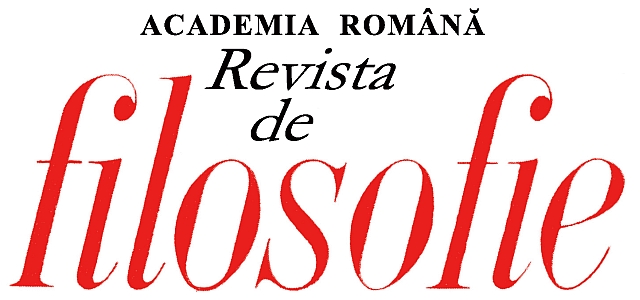
In the year 1935 the Romanian philosopher Mircea Vulcănescu delivered a daily heading on foreign policy issues in a newspaper. My idea is that Vulcănescu wrote his paper based on some philosophical suppositions which gave a theoretical content to his comments. In this paper I have tried to extract these presuppositions regarding the international affairs. Vulcănescu claimed that the conjunctures and the apparently insignificant fact have an essential role in the evolution of international politics. His conception is close to the so called Realpolitik, but he has tried to assert in the same time that the humanistic values have to guide the international affairs in order to have and equilibrium between power and interests, on the one hand, and the public welfare and morality, on the other hand.
More...
This article aims at showing that the definition of pleasure in Plato’s dialogues cannot be separated from a political educational program and an anthropology that consider pleasure as the main vehicle towards virtue. The political use of pleasure is as important as its definition, insofar as its manifestation and content are the prerogatives of the legislator. All pleasures are politically meaningful in the Republic and in the Laws, and among them especially the triad hunger, thirst and sex; in making pleasures a “public” issue, as pleasures are object of surveillance and political control, Plato gives several means in order to shape the way pleasures are felt in the city, and in order to make the community of pleasure and pain a fundamental role in unifying the city under the reason’s commands.
More...
In this paper I examine how Brailas conceives of Modern-Greek identity. After an introduction, I look at Brailian texts where it is emphasized that Hellenism and Christianity are the two components of Greek national identity. Does this mean, though, that for Brailas these two elements express a similar mode of being? There are passages that can support this claim. Still, Brailas’ reader should not suppose that the Corfiote philosopher uncritically assumes a linear transition from Hellenism to Christianity. But if Christianity denotes the emergence of something new in history, how can it be compatible with Hellenism? Brailas’ answer is that as with the Mosaic Law, Christianity did not come to abolish Hellenism, but to fulfill it. Furthermore, the association of Christianity with Hellenism enabled the latter to survive throughout history both in the West and the East. Besides, for Brailas variety has always constituted the “harmony of Hellenism”.
More...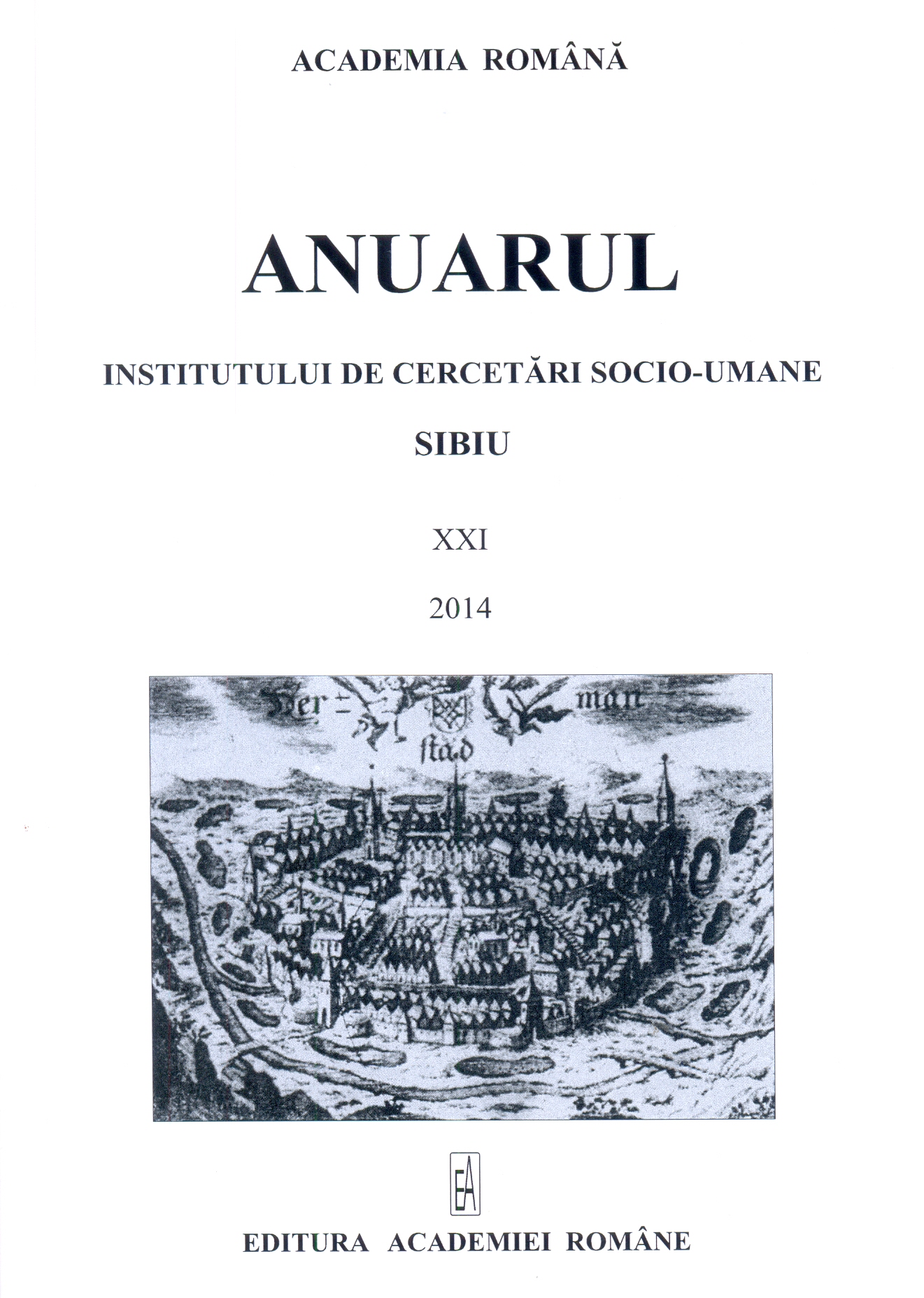
The paper is aiming at analyzing an almost unknown biographical episode of the philosopher Wilhelm Leibniz (1646-1716). In 1713, the Transylvanian chancellary was vacant, and Leibniz, who lived since 1712 in Vienna, where he wished to create a scientific society, applied for this dignity, as he saw himself the only person to meet all the requirements for such a demanding job. Eventually, as he did not want to offend any Transylvanian “natio”, the emperor refused to appoint the famous thinker.
More...
Upravo po svojoj moralno-političkoj raspravi Osnove mudrosti o društvenom uređenju svijeta (Usul al-hikam fi nizam al-›alam) koja spada u domen praktične filozofije, Hasan Kafija Pruščak je i najpoznatiji. Podijeljena je na Uvod (mukaddima), četiri poglavlja (asl - osnova, temelj) i zaključak (hatima). U razradi i formulisanju svoje „Države“ vidljivi su i uticaji inicijalne lektire. To su Anwar at-tansil od Kadi Batydawija, Rawdat al-ahyar ili Rawdat al›-ulama od Muhammada b. Kasima b. Ja›kuba, donekle As-siyasa aš-Šarlyya, odnosno Šerijatska politika, Ibn Taymiya, te Platona i drugih. Kafijevo realistično gledanje na političke događaje svoga vremena neodoljivo podsjeća na Nicola Machiavellija, iako ne postoje podaci da je poznavao ili studirao njegovog Vladaoca (1513).
More...
The study investigates one of the best known 19-20th century Hungarian philosopher, Bernhard Alexander (1850–1927), in the context of the Hungarian philosophy tradition. Reception, memory and narrative. Behind these three concepts I show how Alexander was written by his disciples after his death in 1927. In my study I came to the conclusion that until the end of World War II, the well-known Alexander disciples kept the memory of the master alive. The paper examines the merits and mistakes of the Alexander Literature between the two world wars.
More...
The paper studies the problem of the transcendence of the person suggested by Karol Wojtyła/John Paul II. It originates in the philosophical thought of this Polish personalist and is complemented in his theological works. According to Wojtyła transcendence can be described as “another name for the person” as it is closely related to the fulfilment of man as a personal being. The paper contains analyses of three dimensions of transcendence, and these are: 1) transcendence in action; 2) transcendence towards another “I”; and 3) transcendence towards personal God.
More...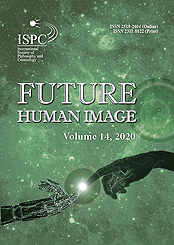
The article deals with the history of the Kyiv philosophical school of the second half of the twentieth century as one of the main and topical objects of the historical and philosophical study of the formation of a modern national Ukrainian philosophical tradition. An extensive and often controversial set of scientific and non-scientific definitions and characteristics suggests the need to study this phenomenon both as a scientific and socio-cultural one using little-studied primary sources. The initial generalizing examination of a significant part of the memoirs of the creators of mentioned school, mainly a series of autobiographical reconstructions of Academicians S. Krymskyi, V. Horskyi, M. Popovych, realized in T.Chaika’s project “The Philosophers’ Oral Histories” as the actual approach in the branch of history of the recent Ukrainian philosophy, allows admitting this school the main center of the revival of interrupted by the Stalinist repressions in the 1930s institutional philosophizing at the Academy of Sciences of the Ukrainian SSR. The studied inflorescence of their personal visions of the Kyiv philosophical school,like a number of original biographical reconstructions of some their colleagues, gives a foundation to estimate this school as an exceptional phenomenon in the history of domestic philosophy, namely the leading ideological and organizational academic-institute capital’s center-school of institutionalization of the Ukrainian philosophic tradition as a national one in Ukraine in the second half of the twentieth —the first decades of this century.
More...
Max Weber: A protestáns etika és a kapitalizmus szelleme. A kritikai kiadás alapján készült új fordítás. Fordította: Ábrahám Zoltán. Szerkesztette, a jegyzeteket és az utószót írta: Hidas Zoltán. Teológiai lektor: Rácsok Gabriella. L’Harmattan, Bp., 2020., 283 old. (Ars Sociologica sorozat)
More...